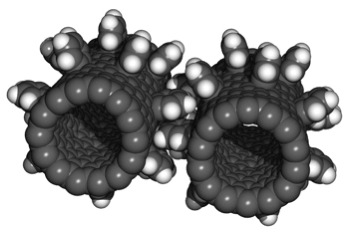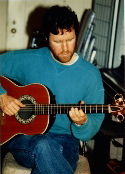Al Globus
Al Globus is Senior Research Associate for Human Factors Research and Technology at San Jose State University at NASA Ames Research Center. He was previously visiting research associate at the Molecular Engineering Laboratory in the chemistry department of the University of California at Santa Cruz.
Al is co-recipient of the 1997 Feynman Prize in Nanotechnology for Theoretical Work. He is member of the governing board of education for the Space Colonization Training Center (SCTC), Member of the board of directors of the National Space Society, Chairman of the National Space Society Space Settlement Advocacy Committee, Honorary Foreign Member (Scientist) of the Romanian The Educational Society for Physics, Informatics, Chemistry and Mathematics in Biology, Member of the program committee of the NASA/DoD Evolvable Hardware Conference EH-2005, Member of the program committee for the 2002 and 2004 NASA Ames Research Center RoboSphere Workshops, Member of the program committee for the 2004 NASA/DoD Conference on Evolvable Hardware, Co-chair of the Fifth and Sixth Foresight Conferences on Molecular Nanotechnology, and Chairman of the NAS workshop on computational molecular nanotechnology on March 4–5, 1996.
He developed JavaGenes — a program to evolve graphs, molecules, circuits, atomic potential functions, Earth observing satellite schedules, and antennas using genetic algorithms, simulated annealing, stochastic hill climbing, squeaky wheel optimization and related techniques. A version of JavaGenes is available under the NASA Open Source Agreement. Download JavaGenes.

He authored Orbital Space Settlement, NanoDesign: Concepts and Software for a Nanotechnology Based on Functionalized Fullerenes, Extending the Information Power Grid Throughout the Solar System, Contest-Driven Development of Orbital Tourist Vehicles, Towards 100,000 CPU Cycle-Scavenging by Genetic Algorithms, Optimizing Particle Tracing in Unsteady Vector Fields, and coauthored Molecular Dynamics Simulation of Carbon Nanotube Based Gears, Automated Antenna Design with Evolutionary Algorithms, A Comparison of Techniques for Scheduling Earth Observing Satellites, and Evolving Molecular Force Field Parameters for Si and Ge. Read his full list of publications!
From 1973 to 1977, Al was a self-employed professional musician. He earned a Bachelors of Arts in Information Science from the University of California at Santa Cruz in 1979 and joined Informatics Inc./Sterling Software Inc. at NASA Ames Research Center, in 1979.
Listen to Al Globus on The Space Show hosted by Dr. David Livingston.
